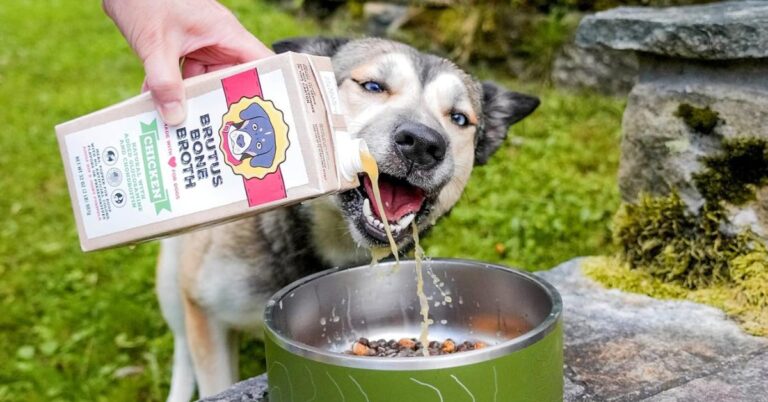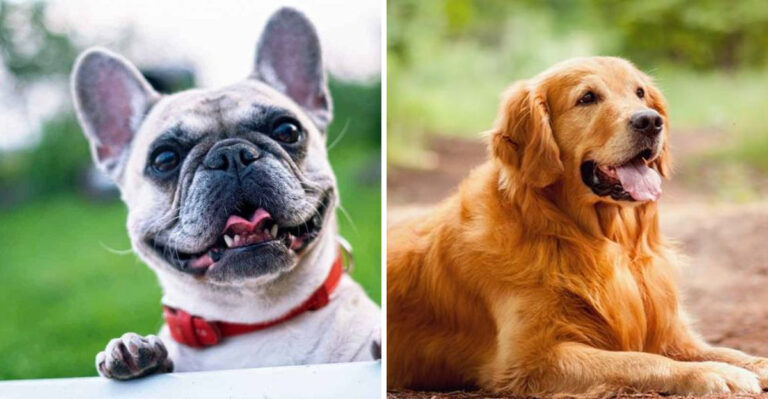15 Early Warning Signs of Anxiety in Puppies

Bringing home a new puppy is exciting, but it’s also a big adjustment for your new furry friend. Moving to a new environment, meeting new people, and adapting to a new routine can be overwhelming, and some puppies experience anxiety. Knowing early signs of anxiety is essential for helping your puppy feel safe, confident, and comfortable in their new home.
Excessive Whining or Barking
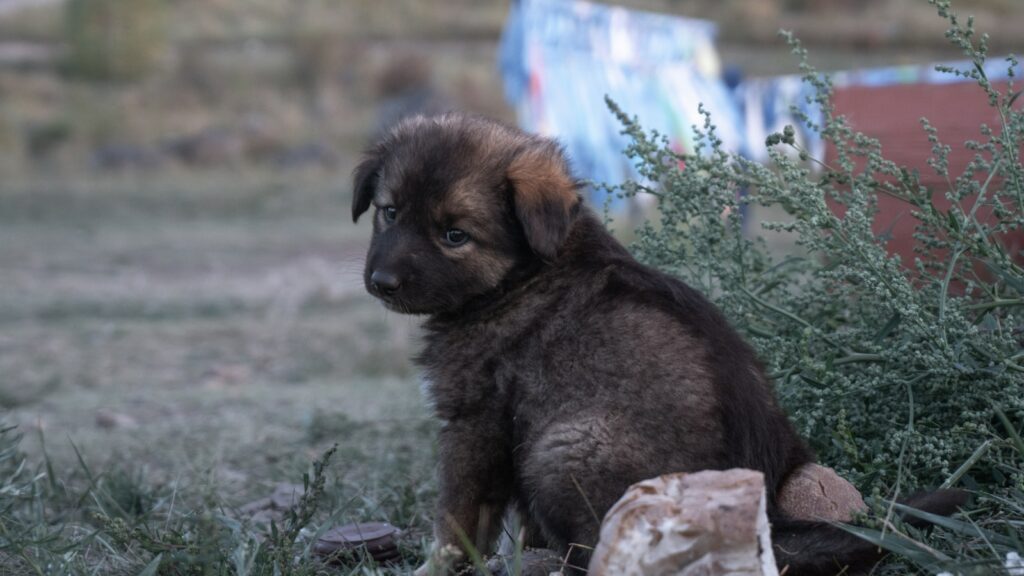
While it’s natural for puppies to vocalize as they explore their surroundings, excessive whining or barking often signals stress loneliness, or fear. Puppies might bark or whine more when left alone or when they feel insecure in a new environment. Unlike typical barking or whining, anxiety-driven vocalizations are often high-pitched, persistent, and challenging to calm down.
Trembling or Shaking
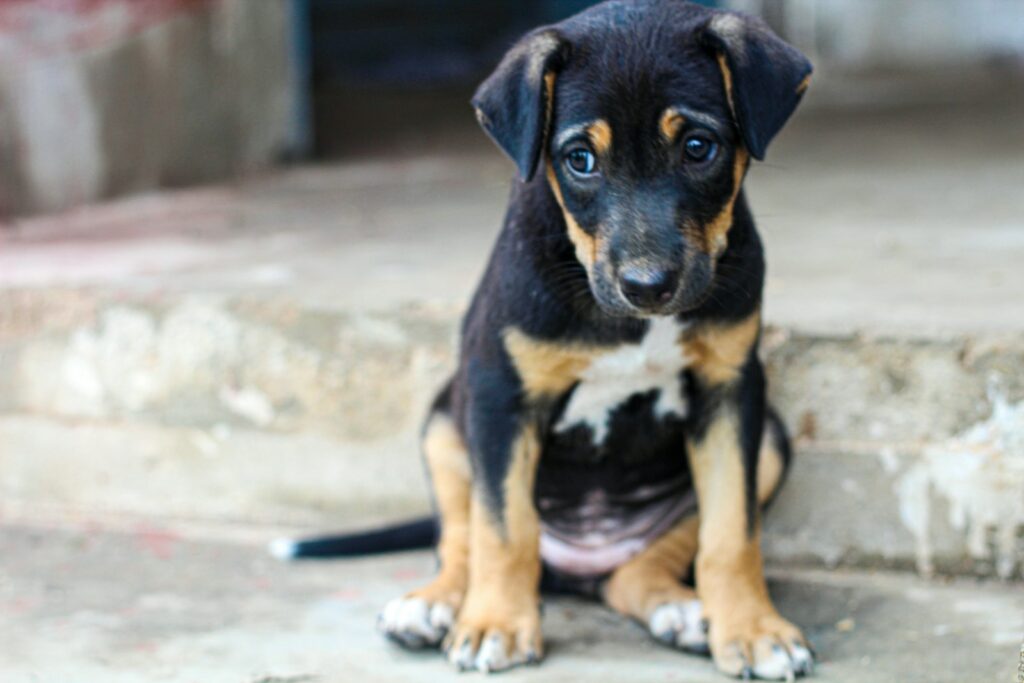
Puppies may shiver, tremble, or shake when they’re feeling overwhelmed. This response is particularly common during situations that the puppy perceives as threatening or unfamiliar, such as loud noises, visits to the vet, or interactions with new animals. Unlike shivering due to cold, anxiety-driven trembling often occurs regardless of temperature and is a visible sign that your puppy is struggling to cope with a stressful environment.
Destructive Chewing or Digging
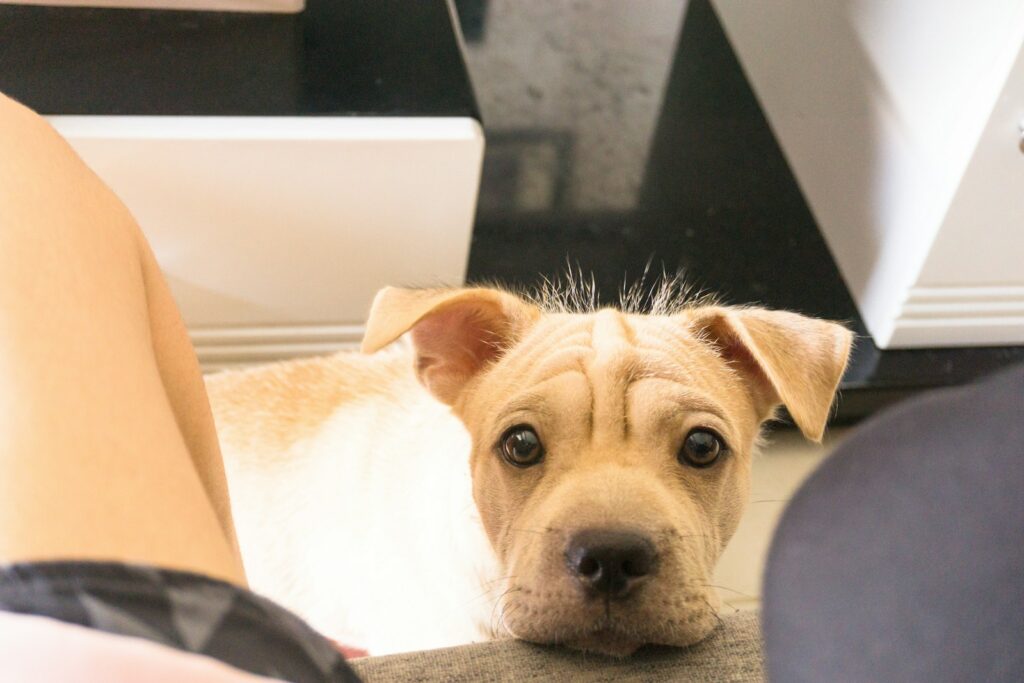
While chewing and digging are normal for puppies, destructive behaviors can be a coping mechanism for anxiety, boredom, or frustration. Puppies may target furniture, shoes, or even walls when they feel stressed, as these behaviors release energy and provide a temporary distraction from their anxiety. Excessive chewing or digging often occurs when they’re left alone for too long or when they’re introduced to a new, unfamiliar environment.
Pacing or Restlessness
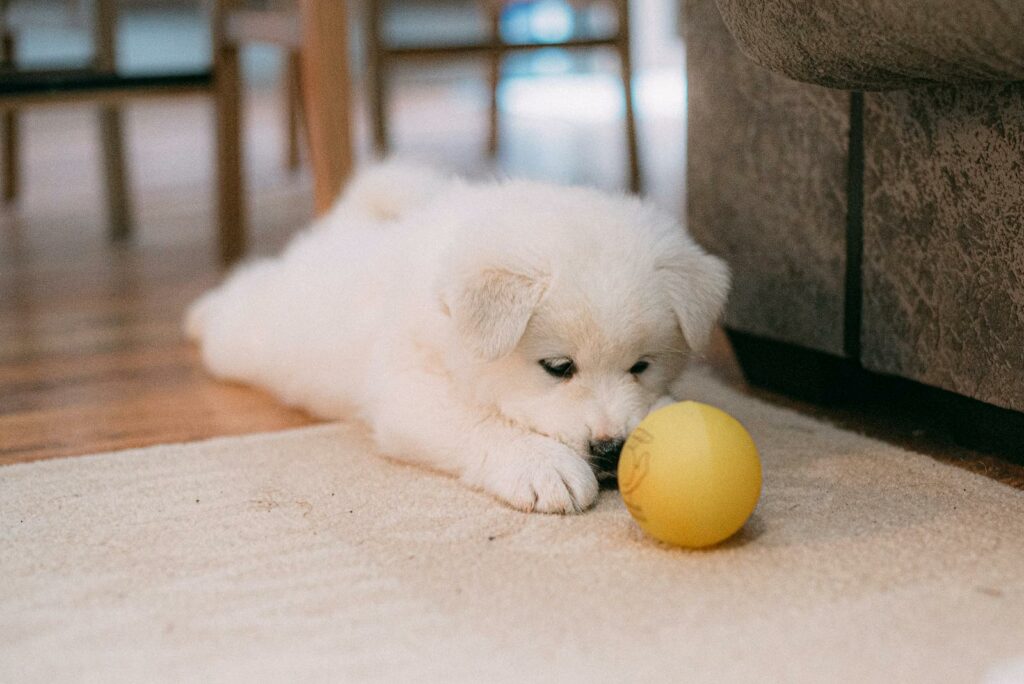
If your puppy seems unable to settle down, constantly paces back and forth, or is frequently restless, it’s often a sign of anxiety. Pacing behavior is especially common in unfamiliar settings, around strangers, or when they sense tension in the household. Puppies may also pace when they’re separated from their owner as a way to cope with the absence.
Frequent Yawning or Lip Licking

Yawning and lip licking are subtle signs that are easily mistaken for normal behavior, but when these actions occur frequently, especially in response to new people or places, they often indicate discomfort. Yawning can be a calming signal for dogs, and puppies may yawn as a way to try to relieve tension. Lip licking is another common self-soothing behavior that puppies use when feeling uncertain.
Avoidance or Hiding

If your puppy frequently tries to retreat to quiet or hidden spaces, it may be feeling anxious or overwhelmed. Puppies often hide under furniture, behind doors, or in corners when they sense potential threats or feel uncomfortable. This behavior could be a reaction to loud noises, unfamiliar people, or chaotic environments.
Loss of Appetite

Anxiety can significantly affect a puppy’s appetite, leading to reduced interest in food or treats. If your puppy seems reluctant to eat, particularly in new environments or around new people, it’s often a sign that they’re feeling stressed. Unlike temporary loss of appetite, anxiety-related loss is consistent in stressful situations.
Panting When Not Hot

Panting is a natural cooling mechanism for dogs, but if your puppy starts panting excessively in situations where it’s not physically exerting itself or in a hot environment, it could be stress-related. Puppies may pant in response to anxiety triggers such as car rides, loud sounds, or being in new surroundings. Anxiety-driven panting tends to be faster and heavier than normal panting.
Excessive Drooling
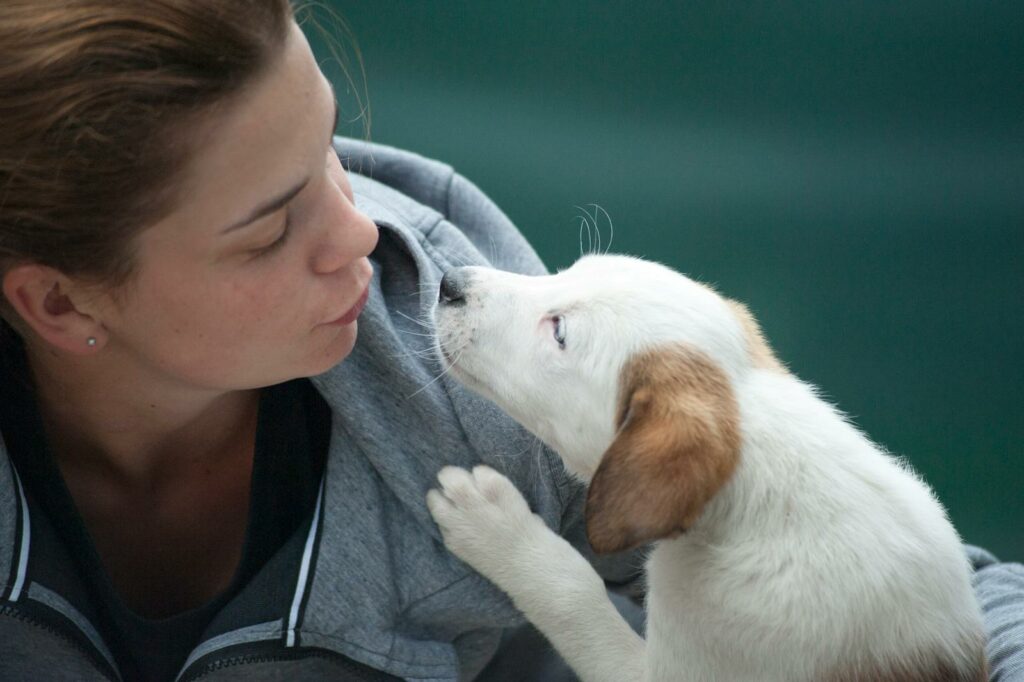
Similar to panting, drooling can be a physical reaction to anxiety. Puppies experiencing stress might start drooling more than usual, especially in scenarios that make them uncomfortable, such as visiting the vet or being around other animals. Anxiety-induced drooling often accompanies other stress signs, like pacing or whining. While drooling itself is harmless, it can signal that your puppy feels unsettled and may need reassurance or gradual exposure to what’s causing the stress.
Urinating or Defecating Indoors
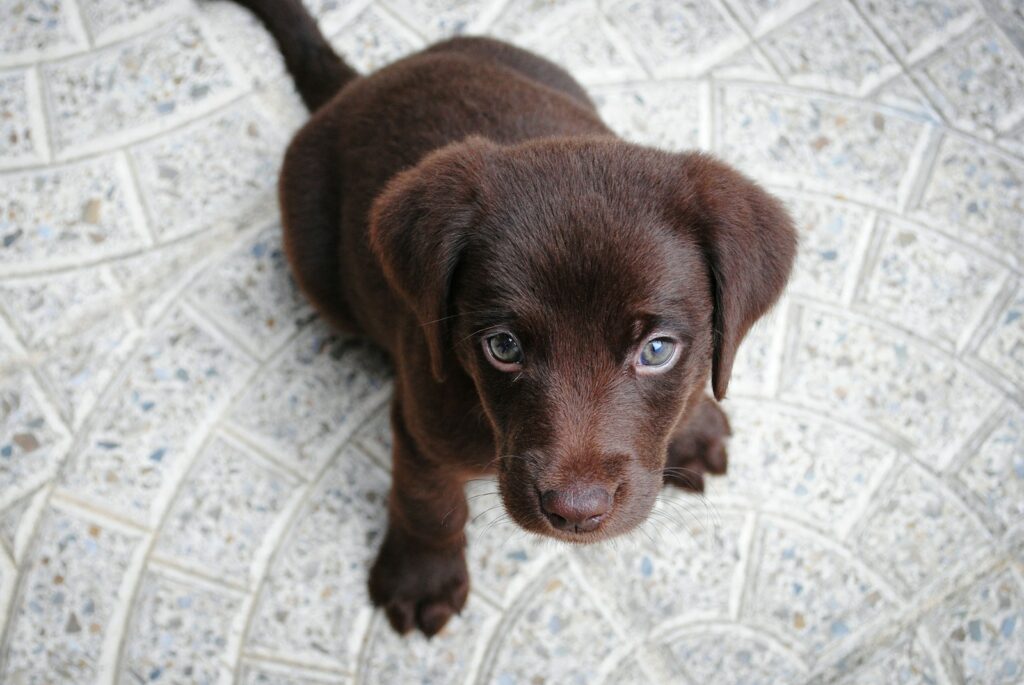
Accidents in the house can happen, especially with puppies, but repeated accidents despite recent potty breaks may be a sign of anxiety. When puppies are anxious, they can lose control of their bladder or bowels, particularly in situations that cause them stress, like loud noises, separation, or sudden movements.
Clinginess or Following You Constantly

An anxious puppy may follow their owner excessively, seeking comfort and security. This clinginess is often an early indicator of separation anxiety, as puppies rely on their owners for reassurance. While it’s natural for puppies to be close to their caregivers, excessive following, especially when it disrupts normal behavior like resting, suggests that the puppy feels insecure or fearful.
Tail Tucked Between Legs
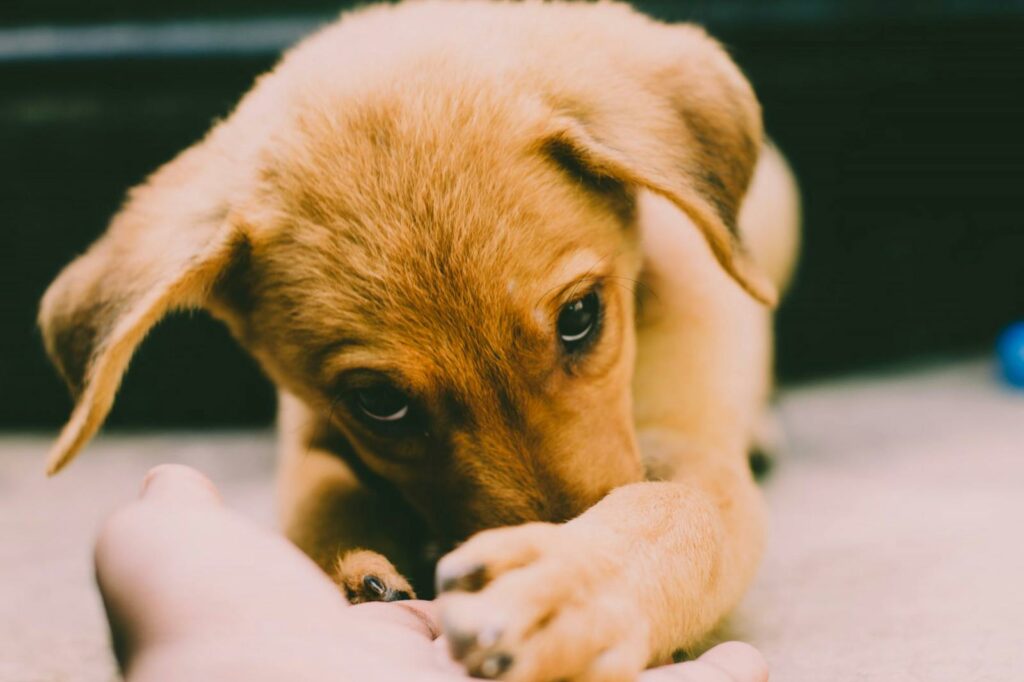
Body language speaks volumes for dogs, and a tail tucked between the legs is a classic sign of fear or submission. Puppies might adopt this posture when confronted with unfamiliar people, loud noises, or strange environments. This tail position is often accompanied by a lowered head, flattened ears, or a hunched posture, showing that the puppy is feeling threatened or anxious.
Hypervigilance or Startling Easily
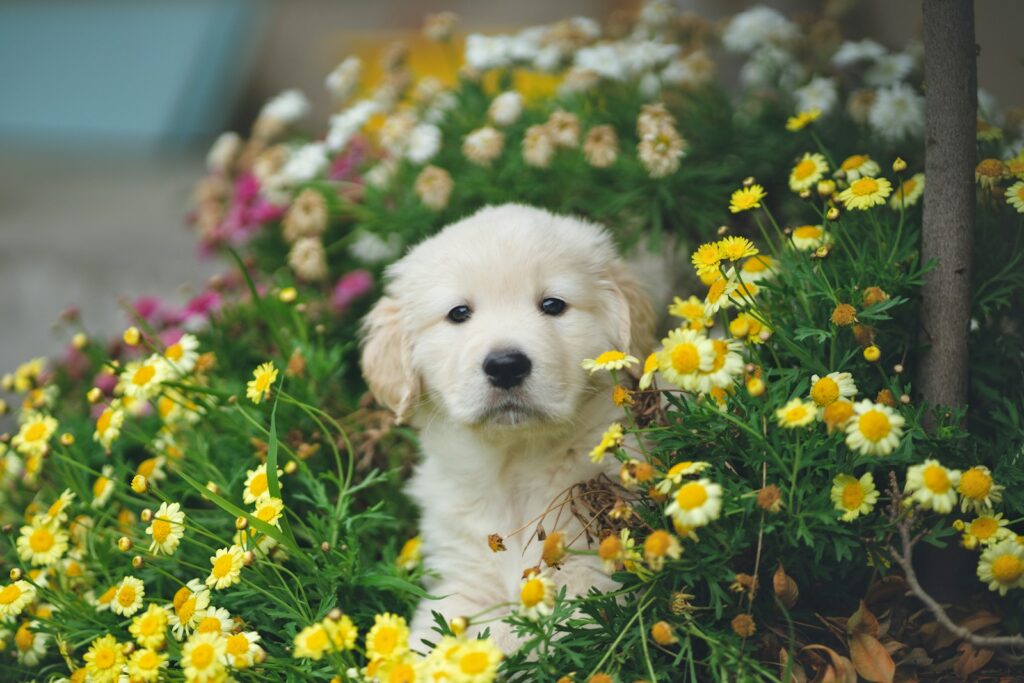
Puppies with anxiety often display heightened alertness, reacting to even the slightest sounds or movements. Hypervigilant puppies may appear jumpy, constantly looking around, or getting startled by everyday sounds. This constant state of alertness can be tiring and stressful for your puppy, as they feel the need to be on guard.
Excessive Licking or Grooming

Puppies may lick or groom themselves excessively as a way to relieve stress, much like a person biting their nails. Over-grooming can sometimes lead to skin issues or bald patches if left unchecked. This repetitive behavior is typically a sign that your puppy feels anxious or frustrated. Providing comforting distractions, like chew toys or mental stimulation, can redirect their focus and reduce this anxious habit.
Drooping Ears and Lowered Body Posture
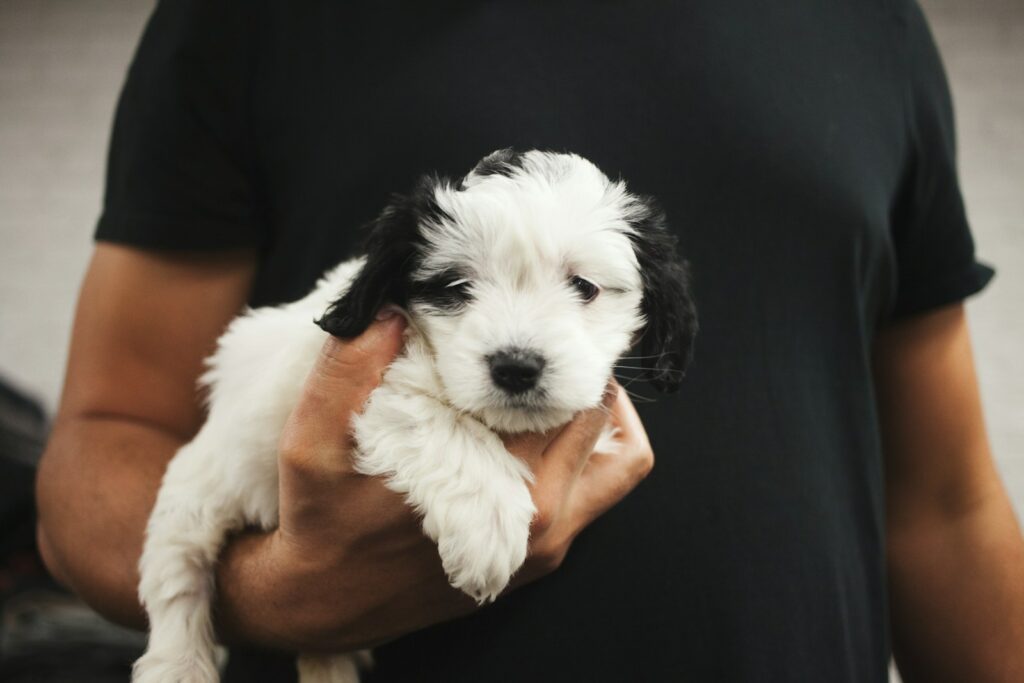
A puppy showing signs of anxiety will often display a lowered body posture, with ears drooping down and a hunched or cowering stance. This submissive posture indicates the puppy feels intimidated or insecure in its environment. Puppies may adopt this position around unfamiliar people, other dogs, or in situations they perceive as threatening.


